Talking about Films_e-version
₹ 50.00
In StockNemai Ghosh
Talking about Films
Writings Speeches Interviews
This is a collection of English writings, speeches and interviews of Nemai Ghosh, best known as the director of the first neo-realist film ‘Chinnamul’ that dealt with partition of Bengal during the partition of India in 1947.
Description
Nemai Ghosh
Talking about Films
Writings Speeches Interviews
This is a collection of English writings, speeches and interviews of Nemai Ghosh, best known as the director of the first neo-realist film ‘Chinnamul’ that dealt with partition of Bengal during the partition of India in 1947.
e-edition, 734 KB
You must be logged in to post a review.
Related products
-
BHOLANATH BHATTACHARYA
The Ornaments of Bengal: A ProfileThis is the story of the ornaments of Bengal as viewed in the historical perspective. The book traces the development of the ornaments of Bengal in fascinating manner with particular emphasis on how ornaments have reflected the social history of the land.
₹ 70.00Version : ebook - hardcopy -
পাউলো ফ্রেইরি
মুক্তির জন্য সাংস্কৃতিক প্রয়াসপাউলো ফ্রেইরি-র শিক্ষাচিন্তার মূল কথা হল— প্রতিটি মানুষ এক-একটি স্বতন্ত্র স্বাধীন সত্তা, যিনি পৃথিবীকে পরিবর্তন করতে পারেন এবং নতুন করে গড়তে পারেন। মানুষের চেতনা রূপ পায় আর্থ-সামাজিক ও রাজনৈতিক পরিস্থিতি আর মানুষটির নিজস্ব পারিপার্শ্বিকের প্রভাবে। তত্ত্ব-কর্ম-সমন্বয়ী বিশ্লেষণী চেতনা মানুষকে ভাবনা থেকে কাজে অগ্রসর হতে শেখায়। শোষকের আরোপিত নৈঃশব্দ্যের সংস্কৃতি নিপীড়ন জারি রাখতে সাহায্য করে এবং মিথ্যা কিছু ভাবনার মধ্যে মানুষকে আটকে রাখে। জ্ঞানার্জনের উদ্দেশ্যই হল শিক্ষার্থীর (সেই সঙ্গে শিক্ষকেরও) তত্ত্ব-কর্ম-সমন্বয়ী বিশ্লেষণী চেতনায়নের মাধ্যমে বাস্তব জীবনে মুক্তি অর্জনের পথ করে নেওয়া ।
পাউলো ফ্রেইরি-কে নিয়ে বিশ্লেষণমূলক কাজ এখানে বিশেষ হয়নি। তাঁর শিক্ষাতত্ত্বের প্রয়োগও খুব বিস্তারিত ও সংগঠিত ভাবে হয়নি। বিদ্যায়তনের অন্দরে বসে গবেষণা যথেষ্ট নয়। তাঁকে নিয়ে কোন অর্থপূর্ণ কাজ করতে গেলে দেওয়ালের বাইরে না এলে চলবে না। তা না হলে মূল ব্যাপারটাই থেকে যাবে অধরা। সমস্যা হল, প্রথাবহির্ভূত শিক্ষাও এদেশে প্রাতিষ্ঠানিক হয়ে পড়ে। দরকার চিন্তাভাবনাকে বাক্সের বাইরে নিয়ে আসা, জানলা দিয়ে বাইরে তাকানো। ‘শিক্ষাব্যবস্থা’ নামক জড়দ্গবটিকে ভাঙতে হলে, ফ্রেইরি-র শিক্ষাচিন্তা অধ্যয়ন করা তাই খুবই জরুরি। তাঁর সব বই-ই পড়া উচিত, কিন্তু প্রথমে পড়া উচিত ‘কালচারাল অ্যাকশন ফর ফ্রিডম’।
বাঙালি পাঠকের কাছে পাউলো ফ্রেইরি-কে একেবারে গোড়া থেকে পৌঁছে দেওয়ার জন্যই এই বইয়ের পরিকল্পনা। বাংলা ভাষায় ফ্রেইরি-র লেখা সাবলীল ভাবে পৌঁছে দেওয়ার মূল কাজটি করেছেন সবিতা বিশ্বাস এবং এ বই সম্পাদনা করেছেন সলিল বিশ্বাস, দু-জনেই প্রথাবহির্ভূত শিক্ষার কাজে দীর্ঘ অভিজ্ঞতাসম্পন্ন।
প্রথম সংস্করণ, নতুন মুদ্রণ, ১১০ পৃষ্ঠা
₹ 200.00 -
Shyamali khastgir
Jadugoda DiaryThe uranium that fuels India’s nuclear weapons and energy programme is mined at Jadugoda in Singhbhum district in the state of Jharkhand. The company that does the mining is Uranium Corporation of India Ltd (UCIL). UCIL was established in 1967 and started its operations in 1968 at Jadugoda with uranium ore mining and a processing plant, each of 1,000 metric tonnes per day capacity.
For more than three decades, there have been a large number of news reports in various magazines and newspapers, detailing various health problems suffered by the people of the area. Mostly these have concerned a large number of deformities in children and various kinds of lung problems.
Shyamali Khastgir surveyed the area in year 2000 and brought out this report.
₹ 40.00 -
Bholanath Bhattacharya
Krishna in the traditional paintings of BengalThis monograph deals with the history of the pat in various parts of India, the evolution of the pat of Bengal with a special analysis of the Kalighat branch, the patuas, and lastly the history and significance of the Krishna cult in lndia in general and Bengal in particular and the place of this cult in the traditional painting of Bengal. Although the traditional pat of Bengal has had for its subject a host of religious and social themes, the present monograph seeks to introduce the reader to it through illustrations of pats from the author’s personal collection dealing with one particular Hindu deity, namely, Lord Krishna.
₹ 100.00 -
Bharat Mansata
Organic RevolutionThis remarkable story demolishes the myth that organic farming can never feed the world! Holistically adopted, it can also revitalise society, enhance the environment and safeguard future generations. In the current raging debate over urban-industrial uprootment of farmers, here is one example the world cannot ignore. After the Soviet Union collapsed – and the US tightened its embargo – Cuba’s Organic Revolution began suddenly, under compulsion. A decade later, in 1999, the Swedish Parliament presented the Right Livelihood Award, or ‘Alternative Nobel Prize’, to the Cuban Organic Farming Association – for “showing that organic agriculture is a key to both food security and environmental sustainability.” Today, not only has Cuba’s productivity increased, its economy, health, education, energy efficiency, water security, … are all big gainers. In 2006, the World Wide Fund for Nature (WWF) and the Global Footprint Network declared: Cuba is the only country on earth to achieve sustainable development! The American Journal of Public Health reported a 45% decline in cardiovascular diseases. Cuba’s bio-diverse agro-ecology and forest cover exceeding 25% also counter global warming. “Increasingly, people came to believe that productive, healthy harvests could be obtained on positive cost-benefit terms, while protecting the environment, … without excessive energy use.” – Dr. Fernando F. Aguilar, President, GAO, Organic Farming Association of Cuba “Cuba offers the very first large-scale test of sustainable alternatives, … before environmental realities mandate the rest of the world embark on a sudden, wholesale switch to organic agriculture.” – Dr. P. Rosset, Director, ‘Food First’, Institute for Food & Development Policy, Washington, USA “… Cuba is creating something truly new and hopeful for all of humanity.” -Prof. R. Levins, Harvard University School of Public Health.
Page 131, New edition
₹ 200.00 -
PAUL GAUGUIN
Noa Noa: The Tahiti JournalOne of the most prominent post-impressionist artists, Paul Gauguin left his family and country only to move to the country of the so-called ‘uncivilized’ Maoris for the sake of painting. There he stayed with the Maoris, noted every intrinsic details of their livelihood and collected their mythology and folklores. He detailed every aspects of them in this book, elaborated the picture of a great civilization. Added with these are reproductions of many of his paintings drawn during his Tahiti days.
₹ 50.00

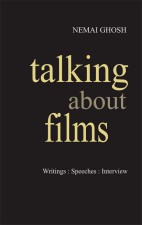
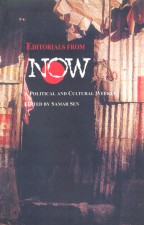
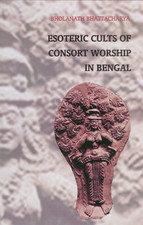
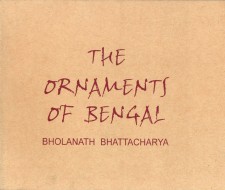
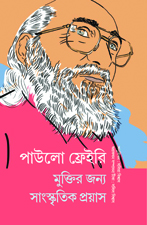
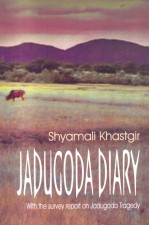

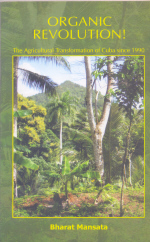


Reviews
There are no reviews yet.